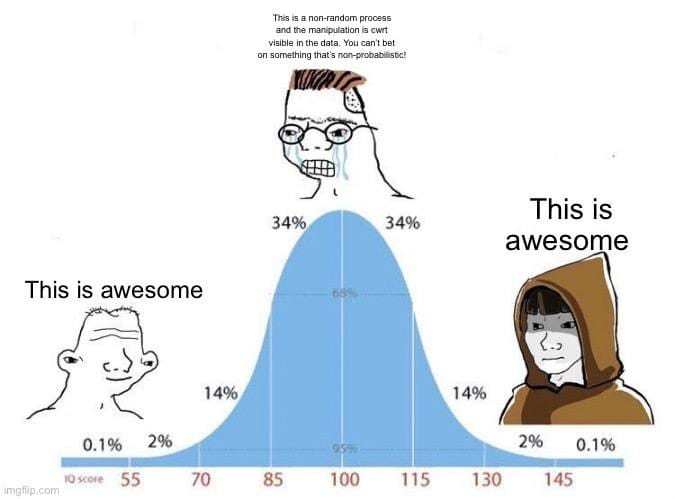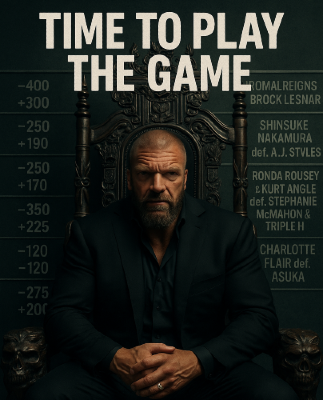Professional wrestling - probabilistic or not?
Fundamentally, the difference between typical sports betting and professional wrestling betting is that in the first we are predicting the outcome of a game of skill with determined adversaries and in the other we are predicting a decision by the wrestling federation.

Nowadays investors and bettors have many options to use their ability to forecast real world outcomes to make money. From traditional sports betting to more general prediction markets, there have never been more options to make money by predicting events. How does professional wrestling compare to traditional sports betting and fit into our current environment? Is it probabilistic or random in a similar way to sports betting? It turns out to be probabilistic with some important differences but very similar to many other outcomes in prediction markets.
For traditional team sports (say basketball), we have two teams consisting of multiple individuals where each team is striving as hard as they possibly can to defeat the other team. To that end, they will do their best to score as many points as possible and prevent the opposing team from scoring as much as possible. For individual sports (say boxing or tennis), we may have an individual striving to defeat the other (by landing punches and possibly knocking out their opponent or say winning points in tennis). In all of the above cases, in an ordinary situation, no one can be sure of the outcome in advance, since both teams (or individuals) are striving for opposite outcomes. The sporting event is therefore fundamentally random, probabilistic or unpredictable in the sense that no one can unfailingly predict in advance who will win.
In professional wrestling, we are in a different situation. The outcome is often a “work” where management and the performers involved have agreed to the outcome (who wins or loses). Further, they will likely have agreed to the sequences of events leading to the outcome. Therefore, if we were privy to these conversations and discussions we could predict the outcome with high confidence. Thus in that sense the outcome is seemingly non-random. (I say mostly, because there is still the small probability someone could go off-script, or for there to be a last-minute change).
However, while on the surface, these two situations may seem very different, on the other hand, both fall into the category of a prediction market and are more qualitatively similar than initially appear. In both of the above categories, the bettor has a small subset of the available information and so can only typically estimate probabilities. In both cases, an insider will have access to more information that will lead to better estimates. In sporting events, there is often lots of information held by insiders that will have a significant effect on the outcome (health of players, attitude of the team, plans to rest players, etc): information that the bettor is not privy to. Additionally, in the wrestling case, for the bettors, the event is still probabilistic in the sense that for almost everyone involved, the outcome is unknown. Fundamentally, the difference between typical sports betting and professional wrestling betting is that in the first we are predicting the outcome of a game of skill with determined adversaries and in the other we are predicting a decision by the wrestling federation. Professional wrestling outcomes are still apparently random or probabilistic to the investing or betting public and still amenable to strategies and analysis.




